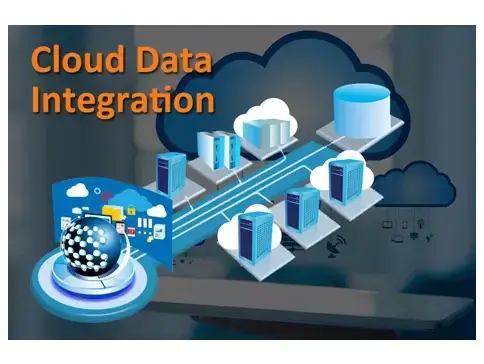Table of Content
TABLE OF CONTENTS

Overview
The move to the cloud is fully in force, and therefore, the variety of organizations’ integrated knowledge in hybrid environments has multiplied two-fold. Nearly three-quarters of respondents’ integrated knowledge in hybrid and cloud environments claimed poor knowledge quality in cloud services, restricted API access, company security, and compliance policies as being among the key problems in implementations. Aside from big data challenges, the largest issue was an absence of data and skills contained inside their organization’s IT departments on the way to integrate with cloud services.
iPaaS (Integrated Platform as a Service)
For the past few years, cloud knowledge management has been outlined by Integration Platform-as-a-Service (iPaaS). iPaaS could be a set of integration tools delivered from a public cloud and needs no on-premises hardware or computer code. iPaaS was specifically designed to handle the lightweight electronic messaging and document standards (REST, JSON, etc.) employed by today’s cloud apps.
iPaaS consisted of 4 capabilities:
- Cloud knowledge Integration
- Cloud Application and method Integration
- API Management
- Connectivity
This approach though positive, provides a restricted read, line for a next-generation iPaaS which will meet the extra vital capabilities.
IICS (Informatica Intelligent Cloud Services)
IICS could be a next-generation integration platform as a service that addresses these key problems with knowledge, application integration, API management, and knowledge management within the cloud, as well as knowledge quality, security, and Master Data management (MDM) capabilities natively engineered for the cloud.
IICS is additionally designed to serve multiple enterprise user personas, promote best practices in preparation by exploitation templates, and alter DevOps strategies for answer delivery. Templates square measure prebuilt logic for common knowledge integration patterns akin to knowledge preparation, cleansing, and deposit. IICS users will produce their own answer templates and save them as assets inside the platform which will then be reused by others throughout the enterprise, augmentingsolidity and fostering best practices. IICS exposes genus APIs which will facilitate DevOps practices as well as automation of answer observation and continuous delivery through integration with external ASCII text file management systems, release, and preparation pipelines.
Capabilities
IICS delivers integration capabilities unified by data intelligence, enforced in container-based micro-services that provide preparation in hybrid, cloud, and multi-cloud environments.

Capabilities square measure being delivered in four distinct, however unified clouds:
- Integration Cloud
- Master DataManagement cloud
- Data quality and governance cloud
- Data security cloud
AI Engine
The CLAIRE engine, Informatica's AI engine, is currently a part of the next-generation iPaaS as AN endpoint, not in AN integration pipeline but within the intelligent automation of information integration activities, trained by data and knowing by individuals. Within the cloud, the CLAIRE engine might probably have access to data generated by several IICS implementations, learning best practices for knowledge integration tasks akin to mapping, transformation, movement, augmentation, federation, and aggregation, leading to intelligent help throughout the development and automation of mundane activities.
Conclusion
The common motif of the next-generation iPaaS is technology consolidation and user expertise, delivering capabilities that talk to business worth. Microservices and instrumentality architectures square measure providing computer code vendors with the chance to unify what within the past has been disparate, whereas conjointly providing the chance to maneuver quickly into hybrid and multi-cloud configurations to satisfy the strain of digital transformation.
Tags
Data in Motion
Asha Shyam Sundar
Senior Technical Writer
Asha Shyam Sundar has 13 plus years of experience in technical documentation spanning across various technologies.





.jpg)